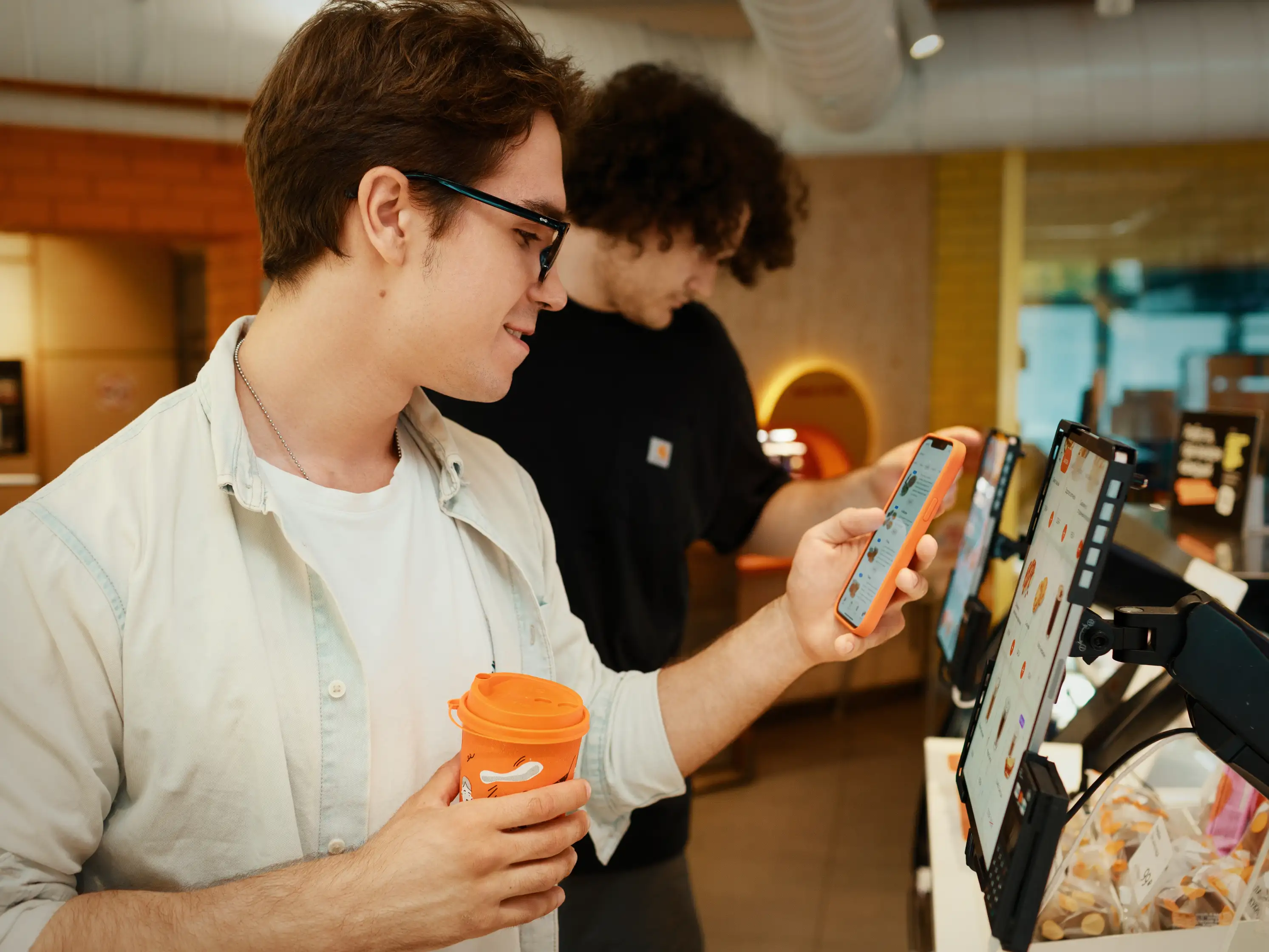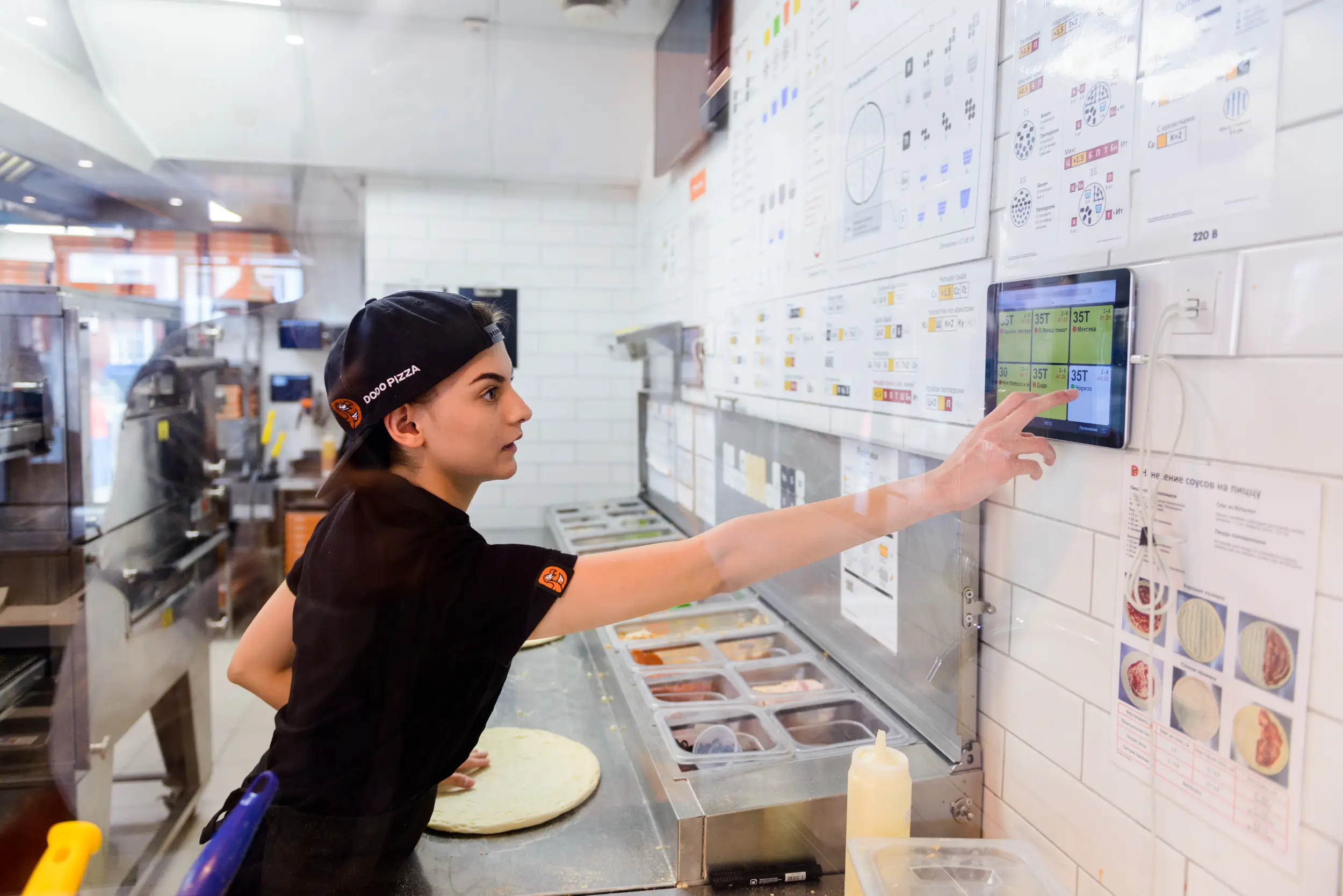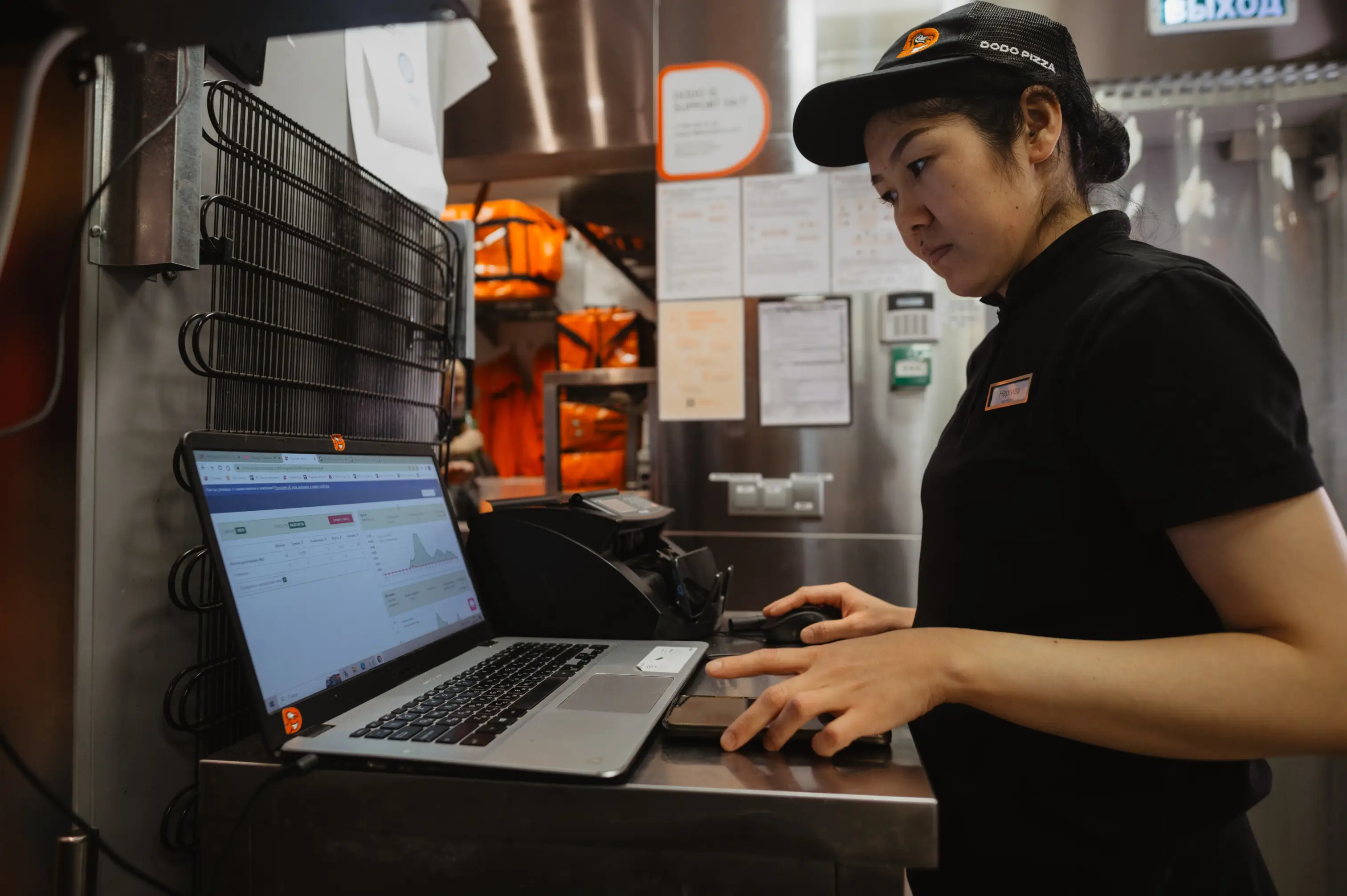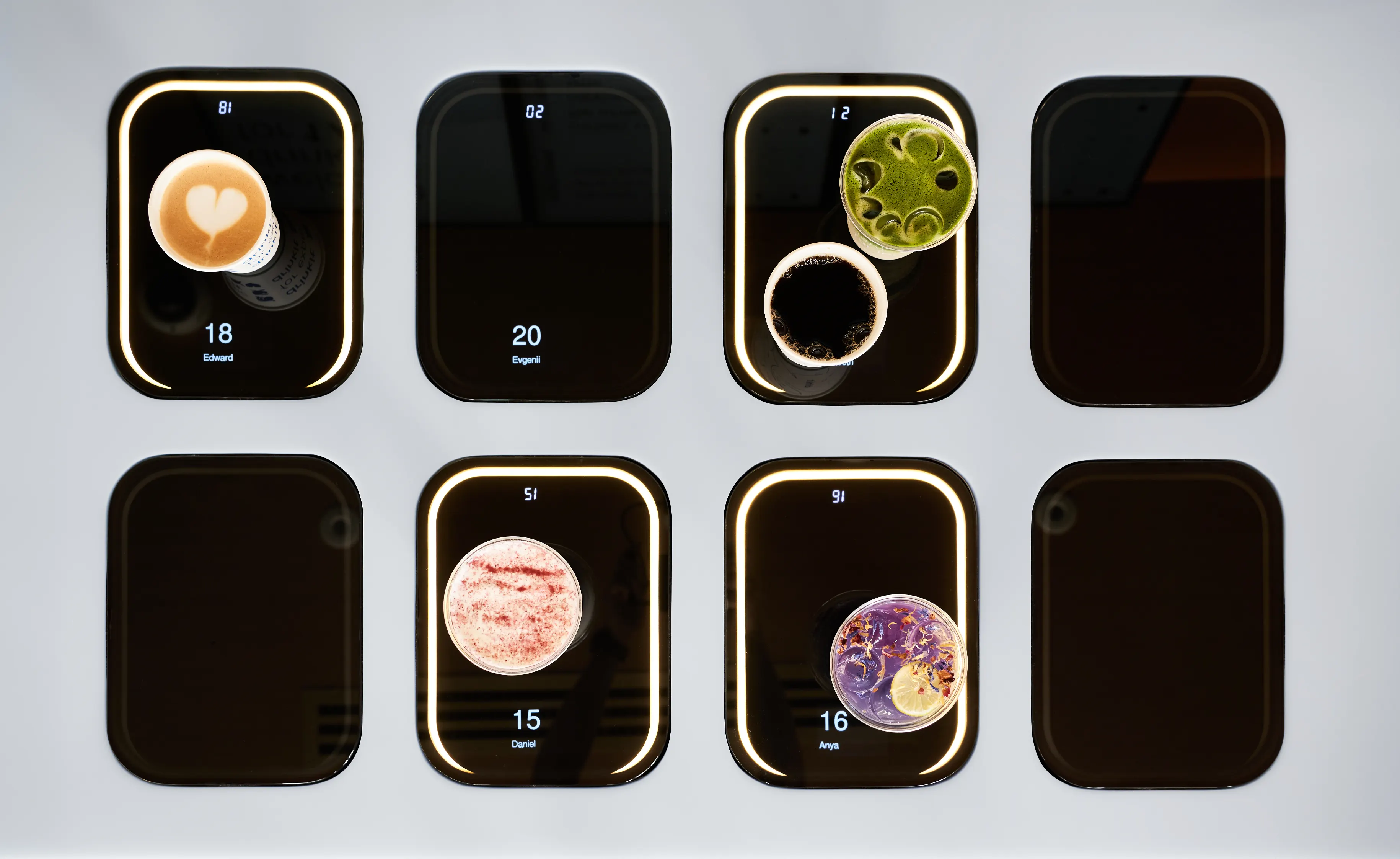What is Dodo IS?

Dodo IS is our unique IT solution that covers every aspect of the business. A few of the features include the ability to process orders through the website or app, controlling production, managing employee shifts, tracking raw material inventory, and running analytics.
As a cloud-based system, Dodo IS does not require any installation. All functions are accessible through a regular browser—all you need is a login and password. The devices used to access the system, as well as POS terminals and TV boards, are all connected via the internet.
Why do we need Dodo IS?
Dodo IS is designed to improve, speed up, and automate operational processes. With Dodo IS, we become a network of “smart” restaurants where processes are automated.
Dodo IS is developed in-house by the Dodo Engineering Team.
Why did we build our own system?
Dodo IS was specifically developed to meet the needs of our company and to meet our business model. As a result, we can respond quickly to market changes and add unique features that keep us ahead of our competitors.
With Dodo IS, we control the development process, priorities, and focus. We don’t pay for features we’ll never use.
Having our own system also pays off in the long run. We retain full intellectual property rights and don’t have to pay licensing fees each time we open a new store.
How does Dodo IS work?

Customers order through the app, website, call center, POS terminal, or kiosk. The order is instantly sent to the kitchen tablet—no need to repeat or write it down. As soon as the pizzamaker hears a notification, he or she marks the order and begins preparing it.
The order is tracked via tablets at every stage—dough, toppings, oven, packaging—until it reaches the dining area or is delivered. If it’s a delivery order, it appears in the courier’s app.
The courier picks up the order, checks the items, and heads out. The app maps the route, offers tips, enables contact with the customer, and reminds the courier of deliverance standards.
After delivery, the courier marks it complete in the app—the system records the exact time and logs it in the stats. Delivery can’t be marked complete early—Dodo IS tracks GPS location.
Once back at the pizzeria, the courier checks in and gets in line for the next order.
By the way, after receiving their order, the customer can rate it in the app. Both store staff and office managers see the review immediately—this allows for faster response and a better customer experience.
Is that all? Not even close!
Dodo IS does far more than track order flow. It also improves raw materials management, plans purchasing, and analyzes write-offs.
What can Dodo IS do?

- The system analyzes sales for the past three weeks. Based on that data, it notifies the shift manager of expected sales peaks.
- Dodo IS controls labor costs. Managers can add staff, set hourly wages and bonuses, build work schedules, and analyze sales forecasts. The system can suggest how many employees are needed per hour.
- Dodo IS manages promotions, combos, and TV boards across all pizzerias in the country.
- Dodo IS controls the menu, pricing, and taxes nationally.
By processing such a vast amount of business data daily, Dodo IS also becomes a powerful analytics tool. It includes dashboards and reports with metrics on all business aspects — from repeat orders to product popularity and prep time.
The journey of ingredients in Dodo IS
Let’s say a new ingredient is added—shrimp. In Dodo IS, it’s created under “Ingredient Type” with its unit of measurement, e.g., one measuring cup = 64 g.
Then a supplier and packaging type are added (e.g., 500 g packs), so the system understands supply volumes. When a new batch arrives, the inventory is automatically updated.
Recipes list the required ingredient amount—say 1.5 cups of shrimp for a “Seafood” pizza. The system calculates this as 96 g and deducts it from inventory when the pizza is sold.
For write-offs, the system works the same—it deducts the written-off amount. All ingredient data is gathered in a “Raw Materials Consumption” report. This shows how much was used in production, how much was written off, and the total monthly usage.
You can also conduct audits — comparing actual inventory with what the system reports.
Dodo IS — in Dodo Pizza and beyond!

Dodo IS is also used in our digital coffee shop, Drinkit. Clients can customize and order drinks through the app or kiosk. Orders go straight to the barista’s tablet and move through to smart pickup.
In Drinkit, we added a new Dodo IS feature—smart pickup—which is now also available in some Dodo Pizza restaurants. Customers identify their order by name or number displayed on a locker screen.
To create such devices, we launched an IoT lab where these gadgets are designed, tested, and assembled.
Reliability, Investment, Future
Reliability is one of Dodo IS’s core strengths. That’s why the Dodo Engineering team puts a special focus on system stability. In 2023, peak orders per minute reached 510. In 2024, that number hit 835. In 2025—1,040!
The Dodo Engineering team works every day to make Dodo IS more reliable, more stable, and more convenient for partners, restaurant teams, and customers—always setting new records and raising the bar.